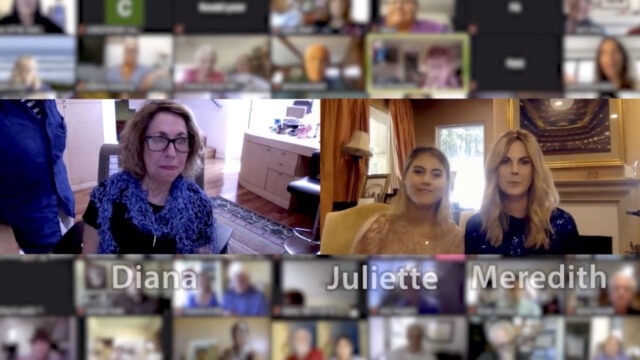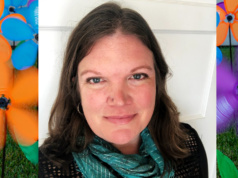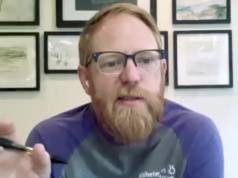– Welcome everyone back to Answers for Elders Radio Network. And we are here on part three of our wonderful four-part series with Carol Rosenstein, the founder of Music Mends Minds. And Carol, it’s such a joy to have you on this show. Today we’ve been talking about so many amazing stories of how the body and the brain responds to music. And I always say I hope to learn something every time I do a podcast, and I’ve certainly made some mental notes myself of some things you said that are pretty phenomenal. So Carol, thank you for being with us this hour.
– Thank you, Suzanne, this is my great honor.
– When I first learned about you, I went on your website and I watched. For those of you that are listening, you have to go to the Music Mends Minds website and find the video that they have right there. It is such an amazing story, and of course we get to see your beloved husband and um, all of how it came to be and what you do. You’re such an amazing trailblazer and and certainly someone that I was so excited to get to know. Finally that we were able to get you through your very busy schedule to be able to have you on the show. So Carol, you talked a little bit in our earlier segments about things that we’re finding out, and obviously we’ve been through a pandemic and you mentioned that you had to make some changes in your program because of COVID. So Carol, tell us a little bit about the evolution of Music Mends Minds.
– COVID closed us down, and it was a nightmare. And it was a board certified music therapist, who had just hired to participate in our in-person groups, and Laura said, Carol, there’s something called Zoom. Why didn’t we try Zoom? Zoom? Let’s Zoom. So she set us up for a call in onto a Zoom platform, and seniors showed up on Zoom, like going to an in-person, and here we started to connect with people from all over the world because it’s just a matter of pushing a switch and it doesn’t matter where geographically you’re located.
– And so very quickly after we started on Zoom, I said, I have an announcement. Being on Zoom today is like being in a high occupancy lane on the freeway and there’s no traffic around. Guys and girls, we’re going for the gold. We continued our growth spurt in spite of the closing down. Instead, it was a growth spurt that we’re enjoying still today., because of Zoom. Today, still three times a week Monday Wednesday Friday on a Pacific Standard time zone, which I know is definitely Washington state. Canada is a little different, but we have lots of Canadians, and many people from Washington state who Zoom in at 11:30 to 12:30 Monday Wednesday Friday, and we’re singing, socializing, and having the best time ever on Zoom. And so that’s what COVID gifted us.
– You know, you say this and I can only imagine when I was a caregiver for my mother. If I would have had a tool like Zoom for her, to join in and feel a sense of community around her. She had dementia, and I know she would have loved it. Even though she wasn’t a singer per se, it wouldn’t have mattered. She probably would have loved to have participated in something like this, because so often my mom would sing some of the old tunes, like, uh, we always had songs between us like, she always would say, oh, daddy by you know, “I want a diamond ring“ because she teased me about my dad, you know, and she would sing little songs that would be meaningful to her from back then. And is that the kind of music that you feature mostly?
– Absolutely, yeah. It’s because of our memory storage cells I spoke about earlier. They’re in our brains. They never die. They’re adjacent to the cells that are dying because of our diagnoses, and yet memory storage cells blaze on, and they remember all of the oldies but goodies, and so when you sing an oldie but goodie, you’ve got the music as the anchor. And you even remember the taste of that wonderful casserole or your beautiful perfume, and the first kiss that you had together. And these are the memories that are evoked. Music titilates those cells from yesteryear and that’s why our seniors will wake up and sing a song.
– I know as family caregivers, they’re always looking if they’re taking care of a loved one, whether it’s a spouse or a parent, or an aunt or a grandparent. We’re all family caregivers are always looking for something to make that person’s day better today. The fact that you do these three times a week, Carol, it’s pretty amazing. And you said you have a music therapist. And what does the music therapist actually mean to the families out there? What do they do?
– They are trained in the brain music reactions. They know about diagnoses like strokes or PTSD and the mechanism, very intricate, and they will be able to handle a patient in the moment, using music as the tool. It’s like having a shot in the arm. Sing a song – it’s as palpable and important as having that pill out of your medicine jar. And the side effects, Suzanne, are pure joy. We’re talking about the field of iatrogenic medicine, the side that the drugs are on, and this drug called medicine has a side effect that is pure joy and increased brain function, not only for the patients, but the caregivers and the families at large. It’s a win win win situation with music.
– Yes, absolutely. And I just can’t imagine all the things that music can do for a loved one. Even depression, even uh, you know, so many of our seniors during the pandemic, they were alone and lonely. They were isolated, they didn’t feel a sense of connection, living in this bubble for as long as they did, they couldn’t see their family members. I can imagine. I can just only imagine what joy you brought to so many people through this horrible time that we just all went through.
– It’s wonderful that we’re still able to do three times a week on Zoom. It’s fun, it’s free, it’s therapeutic, and wherever you live, zone in, Zoom in, at your time zone, come and meet us, and be with musical friends that will so heartily welcome you.
– Yes, and I’m everybody, And just so you know, for our listeners, you know you can get on Zoom, whether it’s on a desktop computer, you can even on your phone, and it’s very easy to access. I think most of us can get on Zoom or we have been on Zoom. It’s not hard. So for those of you that think, oh well, I could never get on Zoom because I don’t know how, I think you’ll be very amazed how easy it is. And I am venturing to guess that Music Mends Minds gives people instructions on how to do that.
– And yes, our website will give you the link. And what you do need to get help with first is to download the software for Zoom, and you get that through the app store. Somebody who is a little tech savvy about this can do that for you. And then all you need to do is click a link and ba-boom, there we all are.
– There you are, and if you’re an adult child and you’re thinking what can I do for my loved one, or maybe mom or dad live in Cleveland, Ohio and you live in San Francisco. What a great opportunity for you to participate together with something like that, be on a Zoom call together. You know, that’s the beauty. It’s like Zoom will unify everyone coming together, and it’s certainly gives an opportunity for you to participate in something really special with your loved one and and celebrate the things in their era, what they lived through, the things that meant the most. And I know that. You know, for me now my mom has been gone since 2011 — the memories that stick out with me, so many things are those little moments kind of like the songs that we sang or the little things that we did. You know, my mom, she always used to sing “I’m a lonely Little Petunia in an onion and pat.” That was kind of her thing with me. And I think about that song… we don’t sing those songs anymore. It’s not something that you hear out in the world. So this is an opportunity to connect with that, so I’m so thrilled. So Carol, we’re gonna talk a lot about how our listeners can get involved with this amazing program. But in the meantime, tell us how to reach you.
– We can be reached on our computer, on our website https://www.musicmendsminds.org/ and by telephone (818) 326-0500. Call, email, text, we are here 24/7. Share the amazing journey, find us.
– We absolutely will. And so coming back next, we’re going to talk about all the opportunities on how you can connect, and how you can volunteer to get in this amazing program. And Carol and I we are coming back to you very shortly.









